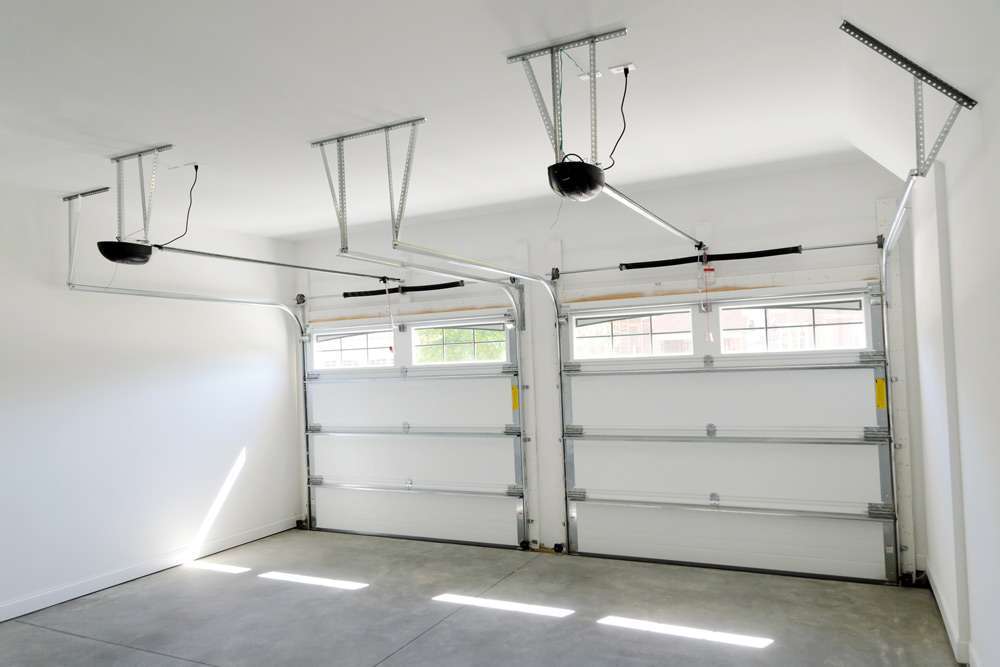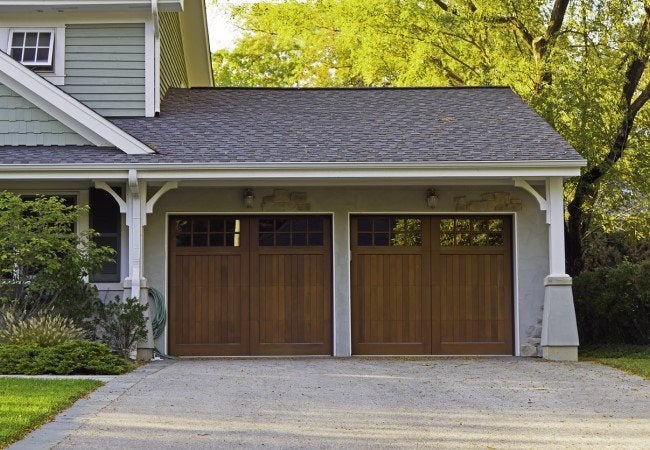Below, you will find a few of the most regular causes for why garage door openers stop working, in addition to what you might have the ability to do about them. Some have quick or basic repairs you can do yourself, while others will likely require the help of a certified professional. Still, having the ability to determine the issue can help keep you safe, and your garage door from sustaining additional damage.
It must go without stating that you don't want the door unintentionally activated while you're working, nor, as with any Do It Yourself home task, do you wish to come across electrical power. If it is safe to do so, try to deal with the door closed. Depending on the drive type chain, belt, or screw (discussed below)- a trolley connected to the garage door by a J-arm is pushed or pulled by the chain, belt, or screw along a track by the motor, often referred to as the operator.
 10 Reasons Your Garage Door Won't Open
10 Reasons Your Garage Door Won't Open
However the real heavy work is done by the springs connected to the garage door. These can either be extension springs which run along the sides of the door, or torsion springs which run above the door. This is among the most common factors your garage door does not open when you indicate it to.
If you have inspected these simple repairs first, make certain the antenna on the motor is hanging down and isn't obstructed by anything, consisting of dirt, and isn't harmed or broken. If none of these are the issue, attempt resetting your remote according to your owner's manual instructions. If you are still not able to open your garage door with your remote but the wall-mounted keypad does unlock, something may be interfering with the signal between your remote and garage door opener.
Examine to ensure the opener is plugged in all the way which the outlet itself is getting power. If the plug is protected and the outlet is powered, you might have a tripped circuit breaker, GFCI (Ground Fault Circuit Interrupter), or blown a fuse. If this holds true, you can either reset the breaker or GFCI, or change the fuse.
This is the most typical repair issue experts see. Torsion springs run along the top of the garage door, while extension springs work on either side of the door. You will either have one or the other. Both springs are ranked for a specific number of open and close cycles (e.g., torsion springs are normally ranked for 10,000 cycles), so these springs do have a restricted life expectancy.
The sound of a spring breaking is extremely loud and sharp. If your door is down when the spring breaks, it will be too heavy for the garage door opener to lift. You must never ever attempt to raise it yourself. Without undamaged springs, that extremely heavy door could suddenly fall and smash into the flooring.
If this happens, don't try to close the door either. In both cases, call a licensed expert right away. Springs are really harmful to work with and can cause serious injury or perhaps death if not dealt with correctly. When a spring breaks, on a regular basis the cables connected with that spring will likewise break.
If your spring(s) have actually broken or become damaged, have an expert check the cables too. Even if you have the springs changed, if the cables go, there's nothing delegated raise the door. If the garage door opener's motor has actually been disengaged, the motor will run but the door won't open.
 My Garage Door Won't Open Or Shut
My Garage Door Won't Open Or Shut
If this cord has been pulled, it allows you to bypass the motor and open the door manually in the occasion of a power outage. Inspect your owner's handbook for how to reconnect your motor if garage door repair menards Tucson this has happened. If the garage door opener has actually a stripped equipment, you'll likely hear a humming noise when you attempt, but stop working, to open or close your garage door.
Why Won't My Garage Door Open?
If you see bends in the track, gaps in between rollers, or hear squeaking or rubbing noises, chances are you have a positioning problem with the garage door's track(s) (not to be puzzled with the garage door opener's track). If your garage door opener's track is misaligned, your door will not open or close appropriately.
If you feel comfy doing so, you may have the ability to repair this yourself. Initially, loosen up the screws holding the track to its frame, then tap the track where it's bent with a rubber mallet to realign it. Make sure to examine both tracks and examine your handiwork with a level.
In addition to the above, the following are possible reasons your garage door could be stuck open:. The picture eyes are two small sensors, one on either side of the garage door, that sit about 6 inches above the flooring, which shoot an undetectable beam in between them.
This crucial security function has actually been in location on garage doors because 1993. However, if the beam is continually blocked by something, such as trash, toys, or yard equipment, the door will not come down. Likewise, a dirty photo eye lens will not have the ability to produce the required beam, and therefore, the door will not boil down. Make sure to shut off the power to the door as well to avoid any further damage from unintended activation. If your garage door comes all the way down however then right away goes back up, it may be a sign that the limitation settings are not properly adjusted. These settings tell the opener the suitable distance it need to take to close.